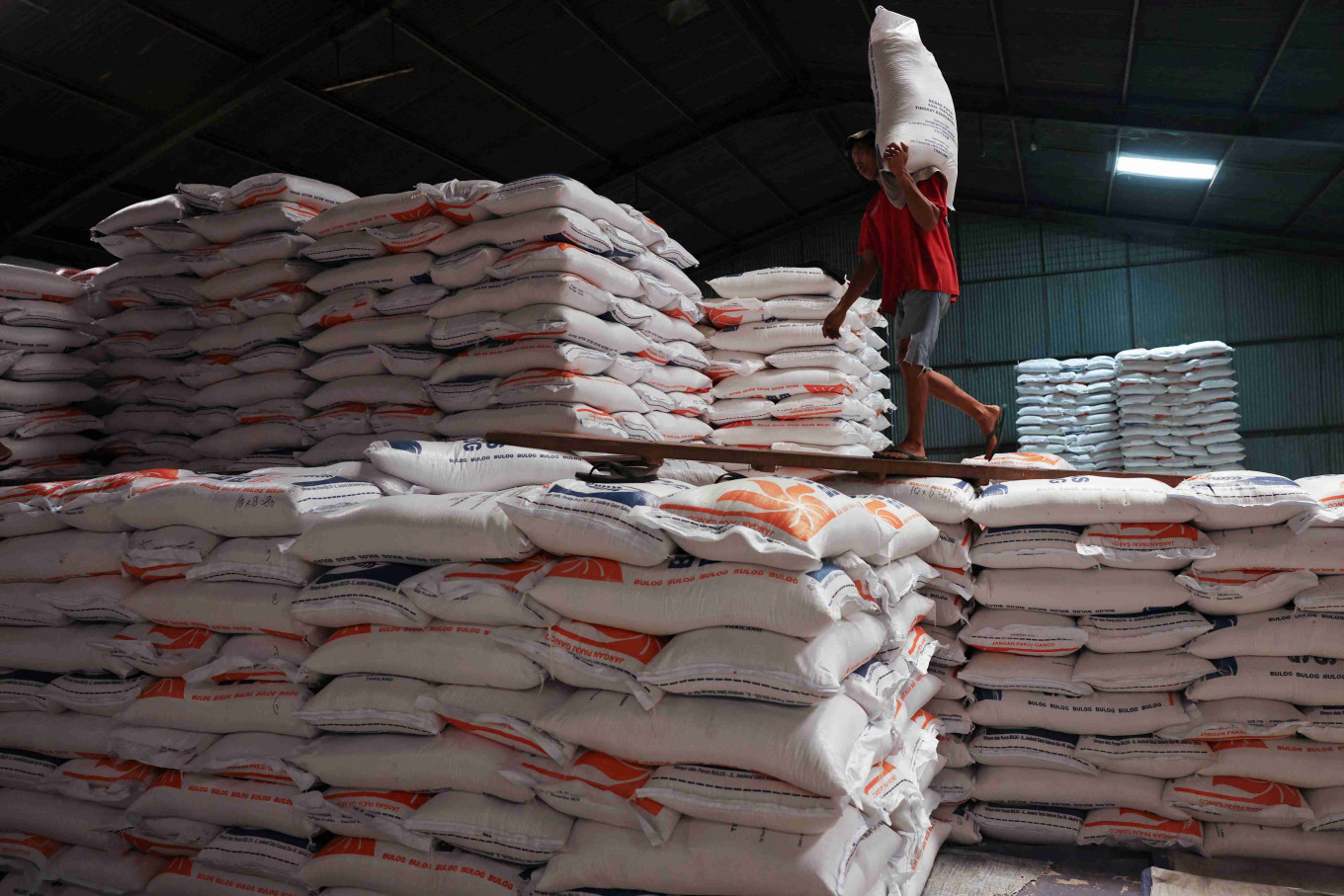Popular Reads
Top Results
Can't find what you're looking for?
View all search resultsPopular Reads
Top Results
Can't find what you're looking for?
View all search resultsSprawling queues for subsidized rice highlight plight of Indonesia's poor
A staple for most of the country's 270 million people, the price of rice has climbed more than 16 percent since last year
Change text size
Gift Premium Articles
to Anyone
I
n the afternoon sun, dozens of Indonesians, mostly women, gather in a snaking queue to buy bags of subsidized rice, their arms poking through a metal gate to grab tickets assuring them a spot to make a purchase.
The temporary bazaar run by state-owned logistics company Bulog in the city of Bekasi, West Java, highlights the struggle of the country's less fortunate to buy the grain that is at the center of nearly every meal in Southeast Asia's most populous country.
A staple for most of Indonesia's 270 million people, the price of rice has climbed more than 16 percent since last year, as the El Nino weather phenomenon has cut rainfall across large parts of Asia in 2023, reducing cereal output and sparking food inflation pressure for some of the world's most price-sensitive consumers.
Masih, a 55-year-old coconut vendor, was among those jostling to buy a 5 kg bag of rice.
"It's better to queue up and have the rice at home. It is expensive in the market, so better to get it cheap here," she told Reuters.
Rice prices at the bazaar are capped at Rp 10,600 (67.8 US cents) per kg, compared with Rp 14,300 in the open market. Bulog limits sales to 10 kg per customer to prevent hoarding.
The government typically steps in to sell food products at subsidized prices when prices climb.
Bulog has distributed more than 300,000 metric tons of rice from government reserves since January through hundreds of bazaars around the country, following reports of scarcity at other retail outlets.
The National Food Agency (Bapanas), which oversees Bulog, said it conducted 429 of the makeshift bazaars in January and plans 315 more by the end of February.
This year in Indonesia, planting delays and lack of rains have delayed the peak harvest by a month, with farm ministry data showing a rice supply deficit of 1.63 million metric tons in January and 1.15 million in February.
Indonesia, which imported record volumes of rice in 2023, has allocated an additional import quota of 1.6 million metric tons, on top of 2 million tons previously approved for 2024, potentially triggering further gains in global prices, which are near 16-year highs.











